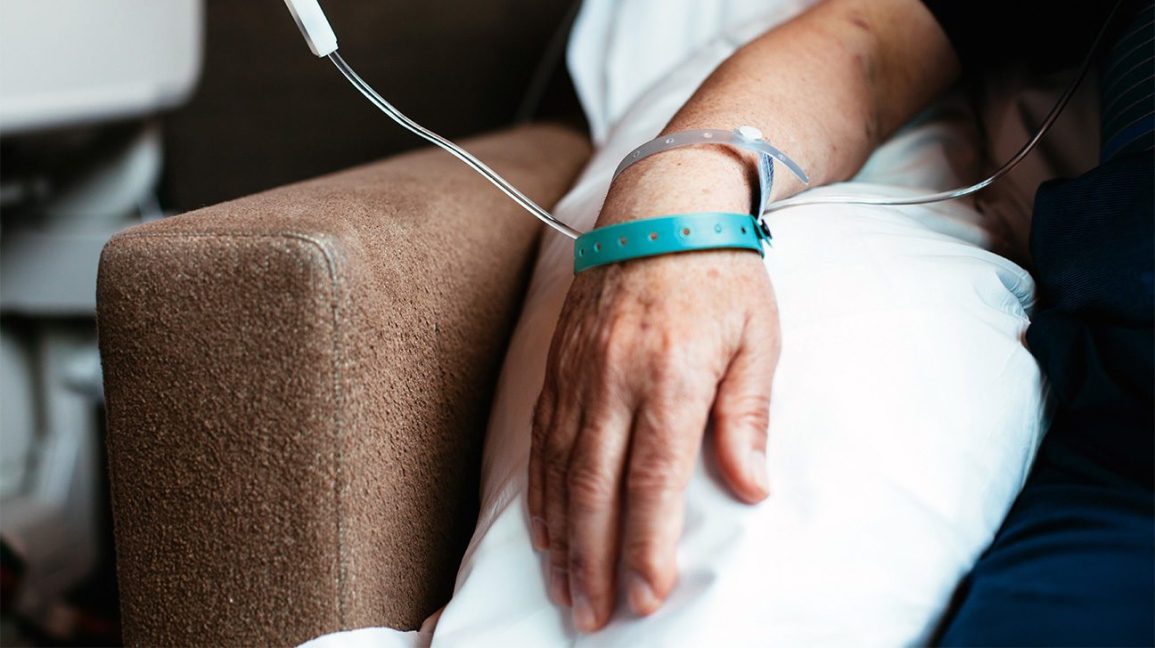Advanced Melanoma Is No Longer Incurable Thanks to Immunotherapy Drugs
- Researchers say half of people with advanced melanoma now survive the disease for at least 5 years.
- They say the main reason is the effectiveness of immunotherapy drugs.
- Melanoma is the deadliest form of skin cancer. It spreads quickly and can be difficult to treat in advanced stages.
Half of people diagnosed with advanced melanoma, a previously untreatable skin cancer, are now surviving — largely thanks to immunotherapy drugs.
A decade ago, only 1 in 20 people diagnosed with advanced melanoma survived for 5 years after diagnosis. Many would live for just 6 or 9 months.
Now, the use of drugs that boost the body’s immune system have dramatically improved survival rates.
“In the past, metastatic melanoma was regarded as untreatable. Oncologists considered melanoma different to other cancers. It couldn’t be treated once it had spread,” Professor James Larkin, a consultant medical oncologist at the Royal Marsden NHS Foundation Trust in the United Kingdom, as well as professor at the Institute of Cancer Research in London, said in a press release.
“This is the first time we can say that the chances of being a long-term survivor of advanced melanoma are now over 50 percent, which is a huge milestone,” Larkin said.

The foundation oversaw a study that reported that the combination of two immunotherapy drugs, ipilimumab and nivolumab, stopped or reversed the progression of advanced melanoma in half of the study’s participants for a period of 5 years or more.
The findings were presented last weekend at the 2019 ESMO Annual Meeting in Barcelona, Spain, and published in the New England Journal of Medicine.
Dr. Trevan Fischer is a surgical oncologist and assistant professor of surgical oncology at John Wayne Cancer Institute at Providence Saint John’s Health Center in California.
He says immunotherapy has had a significant impact on the treatment of advanced melanoma.
“Prior to the age of immunotherapy, we would discuss survival in months, not years. Many patients who were enrolled on this trial would not have even survived a year without immunotherapy and now over 50 percent are alive at 5 years,” Fischer told Healthline.
“In many other cancers with effective treatments that prolong survival, patients move from one line of treatment to the next and spend the majority of the remainder of their lives on some form of treatment,” he added.
“In this study, three-fourths of the patients who had combination therapy no longer required routine treatment. This gives them hope for a cure,” he said.
A cancer that spreads rapidly
In 2019, more than 96,000 people in the United States will be diagnosed with melanoma. More than 7,000 will die from the disease.
According to the U.S. Centers for Disease Control and Prevention (CDC), rates of new melanomas have doubledTrusted Source over the past 3 decades.
Melanoma is the deadliest form of skin cancer. Due to how quickly it can spread, early detection is key.
“It typically goes to the lymph nodes first and from there, can go anywhere in the body,” Fischer said. “Sometimes there are no symptoms of advanced melanoma and it is only seen on surveillance imaging. Some patients will have weight loss, increased fatigue, and pain.”
He continued: “At times the tumors can cause problems where they grow. For example, they can cause GI bleeding when they spread to the intestines, or can cause seizures or headaches when they spread to the brain.”
If caught early, survival rates are good, with many people cured with surgery to remove the melanoma. If the melanoma advances, it becomes more difficult to treat.
Immunotherapy effective
Experts say few other cancers have seen the same success with immunotherapies as melanoma.
The drugs work by helping to boost the body’s natural mechanisms to fight cancer.
“Melanoma is one of the most immunogenic cancers, which means that the body’s immune system can see it and attack it,” Dr. Daniel Aires, director of dermatology at The University of Kansas Health System, told Healthline.
“The immune system must be tightly controlled to prevent it from attacking normal tissues such as joints and bowels,” Aires added. “To help prevent these attacks there are brakes built into the immune system that can be used by normal tissues. Unfortunately, many cancers also take advantage of these immune brakes to prevent immune attack. Today’s immune therapies largely work by releasing the brakes.”
Participants in the study who took the combined immunotherapy drugs but stopped treatment due to side effects still experienced the same benefit as people who were taking the drugs for a longer period of time.
Researchers say one of the benefits to these immunotherapies is that the immune system can still be re-educated in a short amount of time, unlike chemotherapy that requires a complete course to work.
Transforming cancer treatment
In 2018, the Nobel Prize in Physiology or Medicine was jointly awarded to the researchers from the United States and Japan who discovered this form of cancer therapy.
Experts argue their work has transformed cancer treatment.
“This research has dramatically changed the outlook for patients with melanoma,” Dr. Michael B. Atkins, deputy director of the Georgetown-Lombardi Comprehensive Cancer Center at Georgetown University in Washington, D.C., told Healthline.
“The findings in melanoma have influenced research and treatment of many other cancer types,” he said. “The 5-years survival rates look like these will represent cures as the survival curves are plateauing and the vast majority of patients are off therapy and their disease control is being maintained, suggesting their cancer is gone.”
Atkins hopes that in another decade even more immunotherapies will be available for people with melanoma.
“It is hopeful that we will have many other immunotherapy combinations so that patients can get the right combination for them and over 80 percent of patients with advanced melanoma will experience long-term after-treatment survival,” he said.
Source: Healthline. By Elizabeth Pratt
Support families fighting financial toxicity of cancer here
